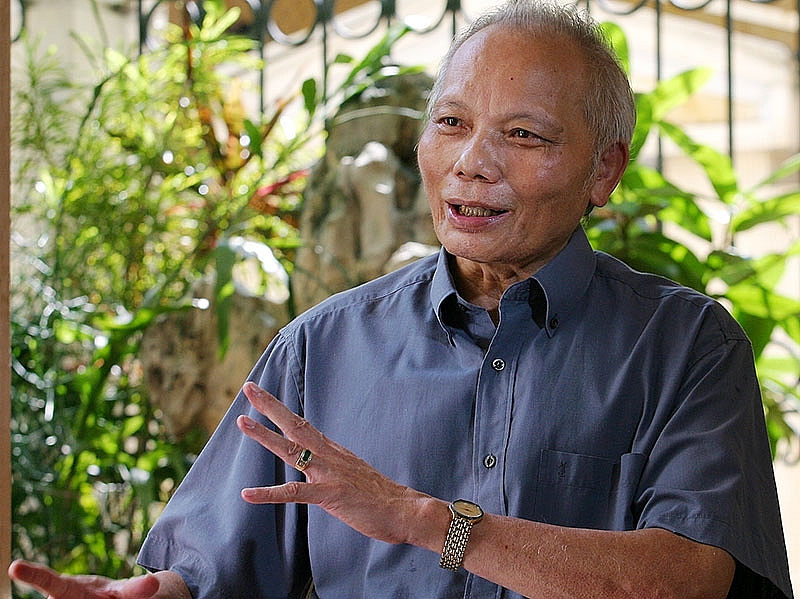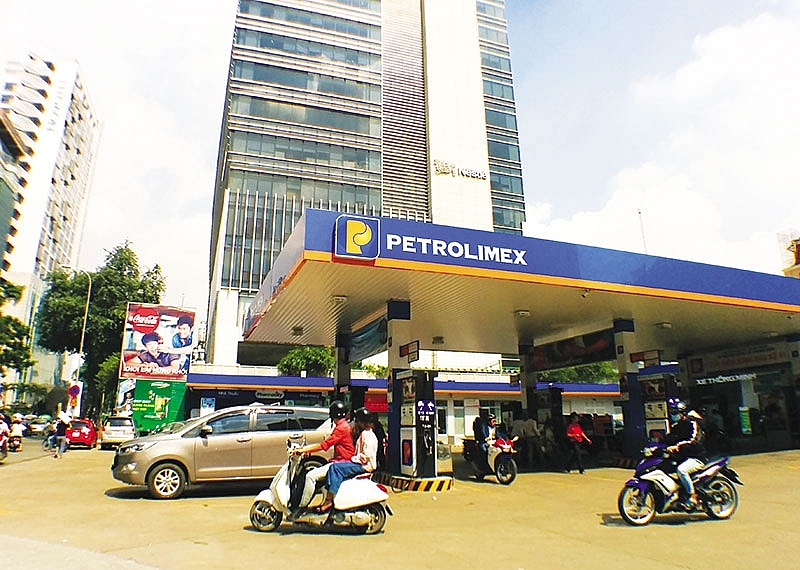Committee established to manage state capital
 |
| Professor Nguyen Mai |
Professor Nguyen Mai, chairman of Vietnam’s Association of Foreign Invested Enterprises and former vice chairman of the State Committee for Cooperation and Investment (now the Ministry of Planning and Investment), shares some insights with VIR.
The establishment of the committee to manage state capital in enterprises has been an important event, drawing special attention from many economic experts. The ‘super-committee’ will manage a huge capital and asset volume, worth about $250 billion, currently held by many large economic groups and corporations. However, the question here is how the committee can operate effectively.
The main function of the committee
The committee is in charge of “representing ownership of enterprises whose charter capital is wholly held by the state, state capital in joint stock enterprises, and limited liability companies with at least two members, under the law.” The committee is responsible to the government for effectiveness in the use of state capital and assets in enterprises. It is supervised by the government, the National Assembly, and law-protecting agencies.
The establishment of the committee will free up a number of specialised ministries from performing the function of being a managing body of state-owned enterprises (SOEs). As such, these ministries will be able to do a better job in exercising the function of state management across all types of enterprises – such as SOEs, domestic private enterprises, and foreign ones – by creating the best business or investment policies and climate for enterprises to grow. The present time is critical for domestic enterprises to grow stronger, with a government target of one million local enterprises by 2020.
The committee will be entitled to exercise ownership rights in enterprises, as well as rearrange, renew, and improve effectiveness in the use of state capital in enterprises. However, it must show respect to enterprises’ rights to do business and be responsible to their parent companies for business results via proper mechanisms, so that the committee’s operations can go smoothly and enable enterprises to do better business and contribute more to the state coffers.
 |
| The establishment of the committee will free up a number of ministries from performing ownership functions , photo Le Toan |
How to operate effectively?
At present, the Ministry of Planning and Investment is compiling a governmental decree on the functions, duties, rights, and organisational structure of the committee. There are three main points of focus that can determine the committee’s operations, namely an organisational structure with a well-arranged and well-performing apparatus, highly-qualified staff, and a modern information system.
The design of the committee’s organisational structure and apparatus must be simple and ensure efficiency. It is necessary to have clear regulations on the functions and duties of each unit within the committee, so that the units can co-operate smoothly with one another in performing duties, making the whole committee operate effectively.
Moreover, the staff working for the committee must meet the requirements of each type of work, and requirements about moral and expertise standards, foreign languages, and experience. Before being selected for the committee, they must undergo thorough tests organised by a council whose members are experts. This will help the committee have not only good leadership, but also good employees.
The committee should first develop a code of conduct for state officers under standards of a facilitating and action-oriented government. The committee should also have frequent training courses for its staff. Anyone in the committee who fails to meet standards must be removed.
What is more, it is crucial that the committee be equipped with a state-of-the-art information system, which can help deal with a huge volume of complex information, and also help to make timely and exact investment- and business-related decisions.
All machines and equipment in the committee must be connected online with other ministries, state agencies, and enterprises as well.
Experiences in Vietnam have shown that when a new agency is established, its initial organisational structure is often simple. Later on, however, the agency’s apparatus often swells because it has to receive many unqualified people whose relatives are state officials. This has often made the agencies operate ineffectively.
Hopefully such a negative situation will not happen in the committee.
How to solve outstanding issues?
The committee’s members operate in many different sectors and geographical areas. They are also different in capacity and governance. They also include some groups and corporations that have been performing well, such as
Vietnam Airlines, and Petrolimex. However, there are also many enterprises that are bogged down in difficulties, losses, and even debts, because they have conducted non-core investment, which has made big dents in the state coffers. Leaders of many enterprises have even been imprisoned. Thus, in order for the committee to operate effectively, the government would need to tackle the outstanding issues of enterprises hit with difficulty before allowing the committee to manage their capital.
Specifically, the government should assign ministries which are the managing bodies of enterprises to review all outstanding issues, including: 1) where solutions to enterprises’ issues have been approved by the government, these solutions must be implemented by the ministries effectively; 2) ministries must introduce measures to solve enterprises’ outstanding issues, and these measures must also then be submitted to the government for approval and then implemented by the ministries; and 3) ministries must localise enterprises’ unresolved issues, so that during its operation, the committee can gradually establish proper solutions.
The establishment of the committee, which is an organisation exclusively in charge of managing huge state capital in enterprises, is a previously unheard-of event in Vietnam. Thus the committee will surely face certain difficulties, such as the establishment of apparatus, recruitment of staff, construction of operational mechanisms, and installation of technical equipment.
However, it is clear that when a new organisation is established, it will have many advantages. For example, it will not have to follow obsolete ways of thinking, with lazy staff and a stagnant apparatus, because everyone in the committee is quite new. If the organisation’s leadership has a new way of thinking, with a strategic vision, they can develop the committee well, meeting all requirements of the country and people’s expectations in the new socio-economic development context.
Nguyen Hoang Anh, chairman of the committee, has advanced six groups of solutions for the committee to implement in 2018. He stressed, “It is necessary to renew and improve the way enterprises are received into the committee. In order to adequately perform corporate governance, and effectively use, protect, develop, and maximise the value of state capital, the committee will need to have a team of qualified staff, and a good organisational apparatus, with firm guidelines from the government, close supervision of the whole political system, and a harmonious combination of relevant ministries and agencies.”
It is hoped that Anh’s first message will be effectively implemented, so that the committee will make great contributions to enhancing effectiveness in business and the usage of state capital. This is particularly important in the existing context of Vietnam pursuing a target of successfully developed regional-level economic groups, which are expected to become global firms in the future.
What the stars mean:
★ Poor ★ ★ Promising ★★★ Good ★★★★ Very good ★★★★★ Exceptional
Related Contents
Latest News
More News
- Foreign fruits flood Vietnamese market (December 09, 2025 | 13:22)
- Vietnam’s fruit and vegetable exports reach $7.8 billion in first 11 months (December 05, 2025 | 13:50)
- Vietnam shapes next-generation carbon market (November 26, 2025 | 15:33)
- PM urges Ho Chi Minh City to innovate and remain Vietnam’s economic locomotive (November 26, 2025 | 15:29)
- Experts chart Vietnam's digital finance path: high hopes, high stakes (November 14, 2025 | 10:56)
- Vietnam’s seafood imports surge 30 per cent in first 10 months (November 10, 2025 | 19:35)
- Vietnam’s durian exports hit $1 billion milestone (October 30, 2025 | 17:41)
- Beyond borders: Sunhouse and new era of Vietnamese brands on Amazon (October 28, 2025 | 10:46)
- Record-breaking trade fair set to open in Hanoi (October 15, 2025 | 15:59)
- Timber sector seeks solutions to VAT refunds (October 14, 2025 | 18:58)

 Tag:
Tag:






















 Mobile Version
Mobile Version